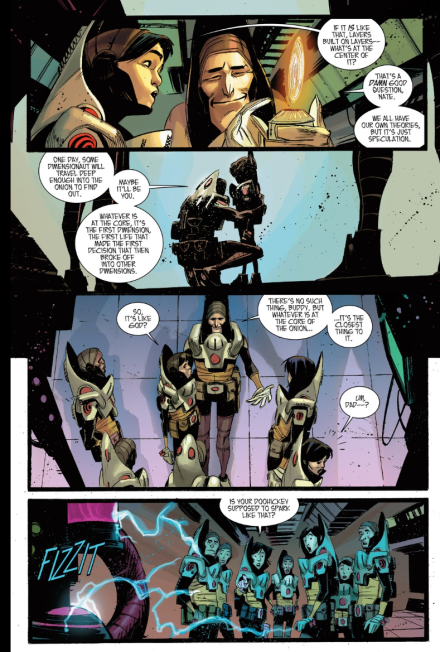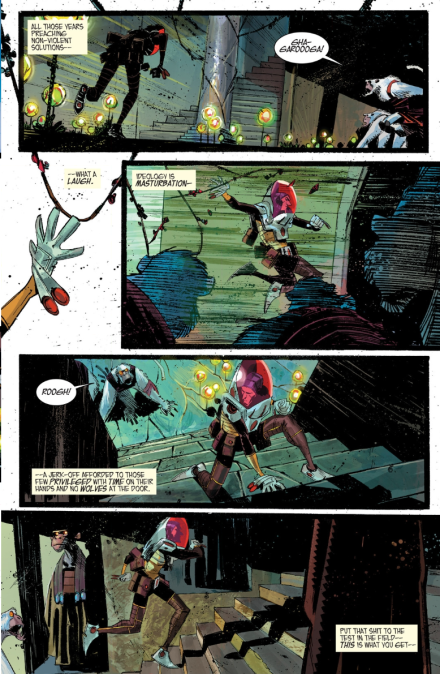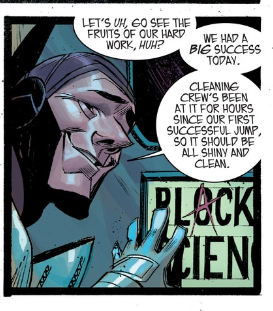Black Science. What a wonderful coupling of words. Science is objective, devoid of judgement or metaphysical values. But Black Science implies something forbidden. The forbidden has no meaning in science; science can’t tell us right from wrong any more than the bible can tell us how old the earth is. Far from shy away from this tension, the comic series Black Science–by writer Rick Remender and artists Matteo Scalera and Dean White–lives right at that intersection, that itch we postmoderns just can’t scratch. And yet, somehow, it manages to be a hell of a lot of fun.
Don’t worry, there’s no actual hard science in this book. The below section is about as deep as it gets; two characters, a father and son, are speaking about the comic’s pulpy version of the multiverse.
McKay Explains the Multiverse.
It’s easy to follow; the reader breezes past these fantastical explanations without missing a beat… but, a philosopher might be given to pause. This moment here is the merest tip of a hat at the central conflict in the story. And it’s a monumental one.
Black Science centers around a genius scientist named Grant McKay. Right off the bat, he let’s the reader know just what a heel he is.
He’s not the easiest guy to sympathize with. He’s a pretentious, self-righteous, anarchist with a chip on his shoulder about authority. But you forgive him right away, because he’s suffering for his arrogance–he’s actively seeking redemption. And that’s the center of the story: man’s quest to do what’s right, in spite of a lack of explicit direction about what that actually looks like. And I should say “Man” with a capital “M” because every character in this book has complicated values, and even when they take on the role of the villain, you see how villainy is often an attempt at goodness filtered through an imperfect being.
In the above scene, McKay is hurrying to protect his children–by murdering a colleague. It’s reminiscent of the Greek tragedies (i.e. how can Agamemnon fulfill all his moral obligations–to his family, to his promises, to his gods–when they conflict with each other on fundamental levels?) McKay is an idealistic man, but here we see him reprioritizing his values in light of the current circumstances. It shows a moral fluidity that so many of us possess and don’t think twice about.
In the end, Black Science is just a comic book. It’s exciting. It’s fun. The art is amazing. If you like science fiction, pick it up at a comic shop or buy it online. That said, there were times I had to put it down because it was stressing me the hell out. Without being heavy handed, or even remotely preachy, it poses real moral questions that don’t have good answers–even if you believe in God-breathed moral absolutes. It’s a book that embraces the difficulties humans have in knowing right from wrong and it does it without being nihilistic; the characters possess a certain nobility in their struggle to do what is right to the best of their abilities, even when their choices alternately cast them as heroes in one situation and villains in another. At least they are choosing, which is more than can be said for most of us in this mundane, singular universe.
See what they did there?
All images in this post are property of Image Comics, a creator owned publisher.




